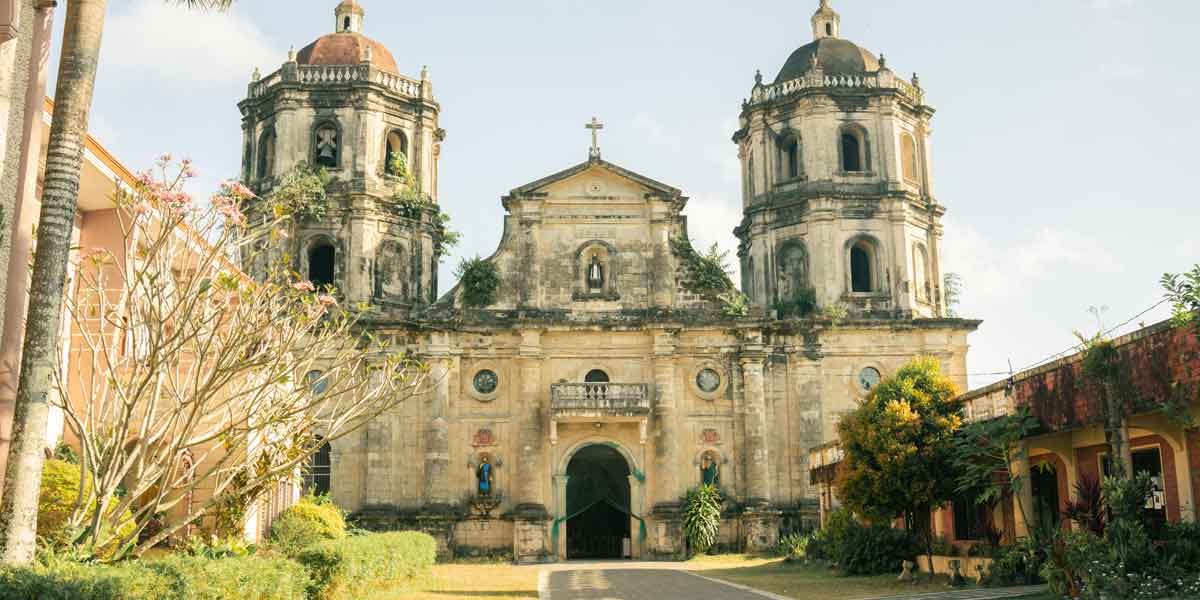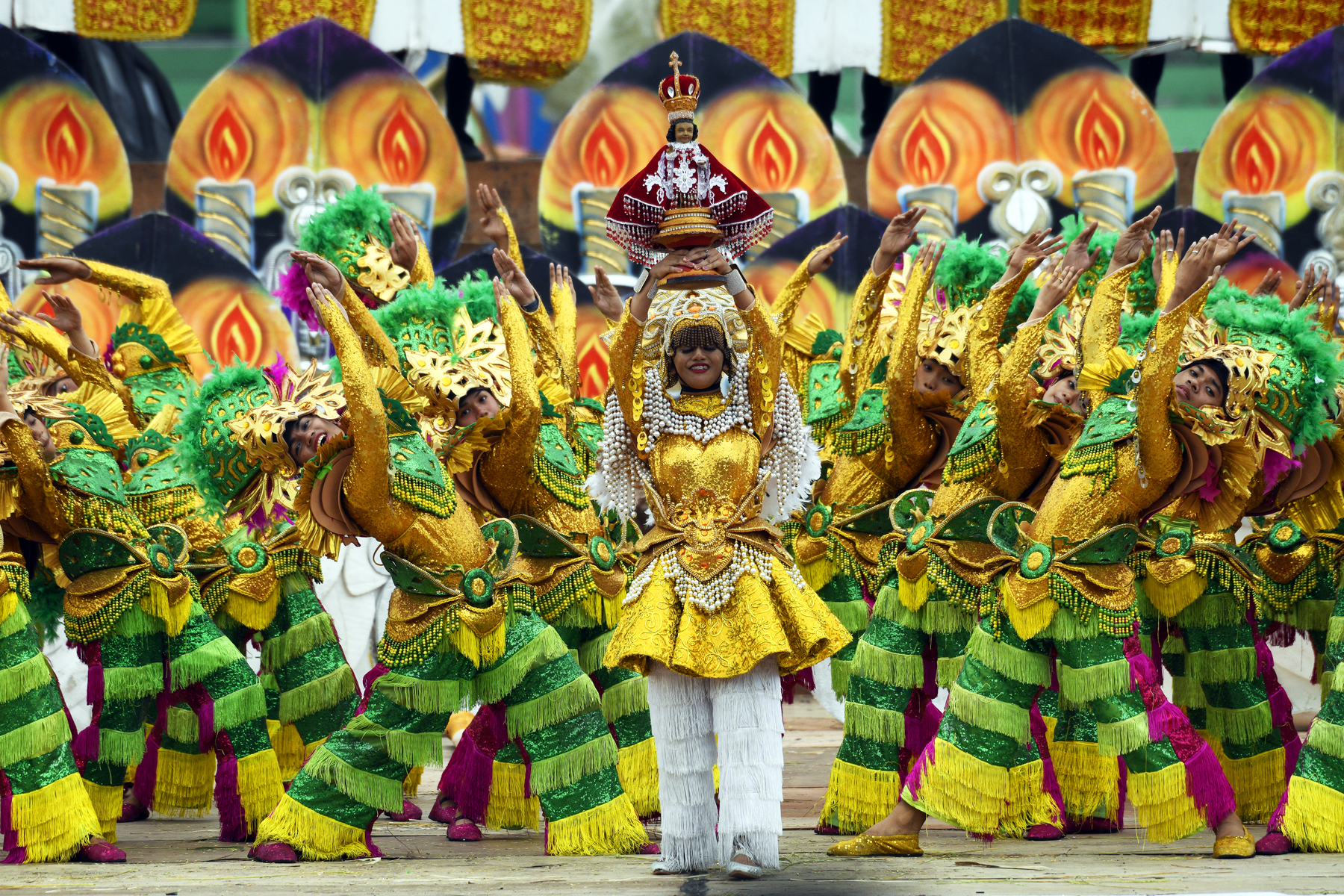Photos by: Ricky D. Alejo
BABAYLAN traditions endure because our elders accepted the cross without abandoning their faith in the anito or spirits; now, it is up to us, the present generation, to be keepers of these traditions that form part not only of our history but of our identity as Filipinos.
On a Good Friday, Christians all over the world remember the death and passion of Christ – a persona introduced to us by the Spaniards. For Filipino Catholics, Holy Week means many rituals – Ash Wednesday, Palm Sunday, Visita Iglesia, Siete Palabras, procession of saints and images, reading of pasyon, pilgrimage to holy sites, and Easter Sunday, a celebration of the resurrection of Christ.
Interestingly, in the upland barangay of Batga in Tubungan, Iloilo, a group of shamans more popularly known as the babaylan converged on a Good Friday at Cruz sa Balabago to perform the Pana-et Ritual, an age-old ritual of lamentations, peace offering, and thanksgiving.
Punong Barangay Rodolfo Tabuloc Sr., 65, head of babaylan in Tubungan, said the ritual is a prayer for good weather. Pana et, he said, is a dunang manggad or treasure he and his community inherited from their elders. They believe that the world has four pillars located in the north, south, east and west. The pillar in the east is located in Bubon Balabago, a wellspring located in Batga, where the ritual is held at exactly 3 p.m. It must be held every Good Friday otherwise it will have no effect.
Wearing red shirts with red headkerchief and striped blue, red and white sash, the babaylan recited incantation and offered candles to the spirits residing in the wellspring. A table of offering consists of slaughtered native pig, cooked freshwater shrimps and crabs, glass of water, a firewood, suman or cooked rice, delicacies, and candles.
Tabuloc started the ritual by smudging and reciting a prayer – explaining to the spirits the presence of guests, asking that they do not touch them as they were there to witness the rituals. Then the babaylan said their prayers – asking the spirits for good fortune not only for them but for the guests as well. Specifically, they asked for rain to quench the thirst of their dried farmlands and for good harvests to improve their living just enough. In between incantations were community dancing and singing and wailing and shouting.
Citing historical accounts, History professor Joyce Christine Colon of West Visayas State University-Lapaz Campus said that as early as 1874 Spanish friars noted that hundreds of babaylanes from all over Panay and Negros go to Tubungan to perform the Panaet ritual once in seven years.
The pana et ritual is done by our ancestors as thanksgiving for good harvest and to ask for blessings. When there is dry spell, they do it to ask for rain or when there is too much rain, they do the ritual to ask for dry weather, she said. Pana et comes from the word daet” or peace, thus, the ritual is also a part of peace offering (to the spirits).
Prof. Colon said babaylans are receptacles of healing and knowledge who played an important part in our story as a nation especially during the time when our forebears were slowly absorbed into the Spanish culture. When our local leaders started to became part of the Spanish local governments, the vacuum they left was filled by the babaylanes, she said.
Ailyn Tacaisa, 40, said becoming a babaylan is a gift from God that most of the time one cannot refuse. She looks at her ability to heal and to mediate between the spirit world and the humans as a blessing.
I abandoned it once but I embraced it again. I realized that once you are called to be of help to others then that is Gods gift to you, she said. Her parents were not babaylan. Ailyn was on a trance during the ritual, saying names of datu and other beings believed to be powerful. She believes the spirits that possessed her are good spirits that meant no harm to the people.
Tabuloc, on his part, said he started joining the pana et since he was 24. He did not believe the ritual and the babaylans at first. But he realized that once you are chosen to inherit the gift, you will have no choice but to accept it otherwise you will suffer ill consequences like sickness or insanity. The gift, he added, is passed on from one generation to the next.
No one will teach you the chants; you will learn it yourself through the spirits, he said.
Meanwhile, Prof. Colon underscored the presence of a cross in Balabago, which apparently, is a mark to remember the death of the Augustinian friar Isidro Badena. He was killed on April 1874 when he and other civic leaders of Tubungan prevented the babaylanes from performing the pana et ritual.
BELIEF & IDENTITY
Mayor Vicente Gargaritano Jr. underscored the importance of the ritual as a spiritual belief and a cultural practice.
He noted that in previous years, babaylans were portrayed and perceived as evil and bad. But he said the local government corrected this perception because historical accounts showed that babaylans are actually vessels of graces and medium that connects humans to the gods.
The panaet ritual is an activity wherein we all believe that there are problems that we have no solution to, and only God can provide the solution, he said, citing the death of the Augustinian friar as a conflict of belief because of lack of respect.
God has many names, he added. What is more important is we believe in God, that there is a god in this universe.
Meanwhile, for Prof. Colon the ritual is important because it is part of our culture. Even before the arrival of the Spaniards, we have our own form of worship, the animism; we are one with our environment and the pana et ritual is a visible reminder of that.
And for a nation that is still seeking its true identity, she said pana et is a beautiful reminder to us on what we have before the Spaniards arrived and what can we do today to revive it.
She called on the public to put importance to history of Iloilo, particularly the stories of babaylan and Tubungan because this is something that will give us our identity. (MAD/TDG Feature)






















